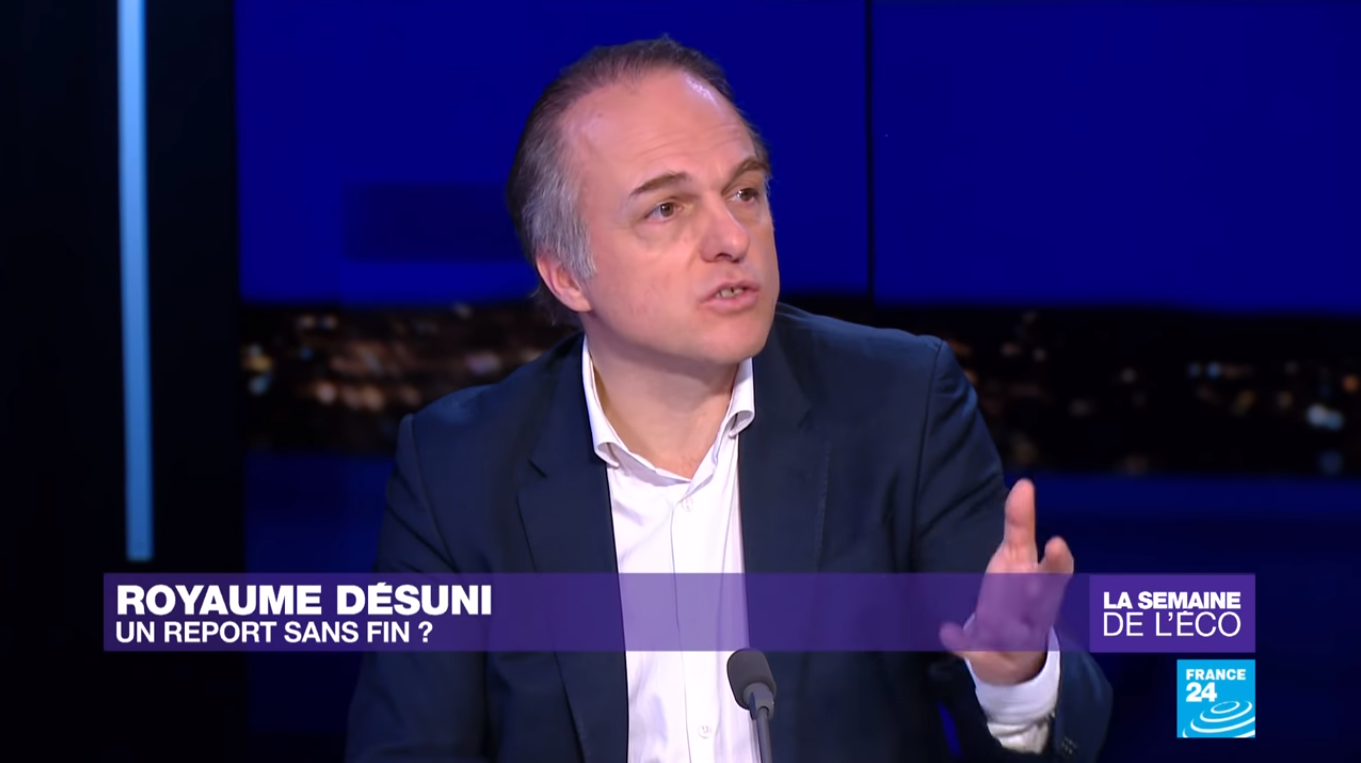Countries of the EU | Countries of the EU | Life & future of the EU | Life & future of the EU | Media | Videos
On France 24 – Brexit: We must “reach out to the Labour”

For three consecutive days, from 12 to 14 March 2019, British MEPs voted in turn against the agreement negotiated with the European Union, against the no-deal and for an extension of the Brexit date initially set for 29 March 2019. The European Union must now decide on the extension of Article 50, which could therefore lead to the postponement of Brexit. In the meantime, there are many questions, first and foremost: “a postponement, but for what purpose? ». Yves Bertoncini, President of the European Movement – France was on France 24 to decipher the latest votes and possible ways out of the crisis for Theresa May.
A postponement, to do what?
Yves Bertoncini does not say he is against postponing Brexit, provided it does not extend over time. For him “the best solution would be to postpone the Brexit slightly, in order to give the British time to ratify it“.
If the agreement itself cannot be modified, the President of the European Movement suggests making “a symbolic gesture on the guarantees of interpretation”. Especially since the political declaration on the future relationship may still change. However, for Yves Bertoncini, it is necessary for both sides to move, in particular Theresa May who could raise awareness among a fringe of the Labour movement by changing her positions on the customs union. He explains that if Theresa May is in favour of keeping the United Kingdom in the customs union, which is what the Labour Party wants, “it would help to rally the Labour votes she needs”.
⚡️⚡️@ybertoncini commente le #Brexit sur @France24_fr : « la meilleure solution serait d’accorder aux Britanniques un délai supplémentaire, mais court, jusqu’à l’entrée en fonction du nouveau @Europarl_FR » Suivez en direct ➡️ https://t.co/fsFuvauZUX pic.twitter.com/28Rso9H5PJ
— Mouvement Européen – France (@MouvEuropeen_Fr) 15 mars 2019
This is why, according to the President of the European Movement, a postponement of Brexit can be considered. Nevertheless, he warns against the risks of a prolonged postponement: “if the postponement went beyond the entry into office of the European Parliament, it would raise the question of their retention in the European Union bodies until the end of 2020”. A solution that would be much more difficult for Europeans to accept.
“Theresa May can only rely on the fear of emptiness”
Yves Bertoncini recalled that the current debate is about back-stop, an element that should be discussed when discussions on the future relationship begin. However, he explains that this relationship will be negotiated much later: “It must be in place by the end of 2020, then we can maintain a kind of blur on the airstrip that could lead to never re-establishing a border”.
The current problem is the multiplicity of interpretations of Brexit. Yves Bertoncini raises in particular the desire of certain hard-brexiters to leave the customs union: “It is the most relentless brexiters who have interpreted the British “no” to Europe as an “ultra-liberal” desire to leave everything”. Thus, the workable solution for Theresa May, according to Yves Bertoncini, would be to “free herself from her radical base to reach out to the Workers, without which she would never have the majority”. He pointed out that we should get rid of this ultra-liberal fringe and anchor “enough Labourers to support the Conservatives”.
This would therefore be one of the possible solutions to close the Brexit series. But Yves Bertoncini concluded by saying that “until this British-British problem is resolved, Europeans will not want to give an additional stay, even if they may have to do so”.
La Semaine de l’éco concluded the discussions on a completely different topic that marks national economic news: the privatisation of Paris airports (ADP). Yves Bertoncini analysed this privatisation in the light of current European and economic challenges.
“Is this the right time to privatize ADP in a competitive environment like this?”
The privatisation of ADP is being carried out to reduce the public deficit. However, Yves Bertoncini points out that privatisation is not the solution. For him, “We must reduce public debt by reforming public spending because we no longer have any room for manoeuvre and we are forced to sell family jewellery”.
#SemainEco #ADP @ybertoncini : en Europe on observe des aéroports principalement publics, ce qui prouve qu’ »il y a des pays qui arrivent à financer les innovations de rupture sans vendre les bijoux de famille », en faisant des reformes structurelles pour réduire la dette publique pic.twitter.com/PHL26O4F1I
— Mouvement Européen – France (@MouvEuropeen_Fr) 15 mars 2019
However, the President of the European Movement questions the relevance of this privatisation in the light of the European economic context. In particular, he referred to the rise of the Dutch government’s stake in Air France – KLM: “Hubs are in competition in Europe, so if the Dutch considered that it was necessary to defend their hub, one could wonder if this is the right time to privatise the major hub that is Roissy / Charles-de-Gaulle”. He underlines the fact that the Dutch, who are liberal, have done the opposite by preserving their hub and raising a stake in Air France – KLM. To conclude, Yves Bertoncini wondered about this: “Is this the right time to privatise ADP in a competitive context like this?“.